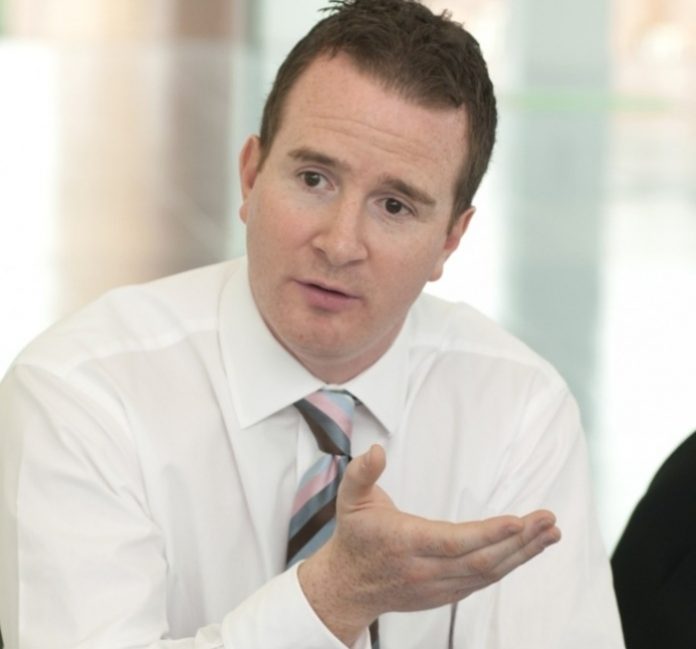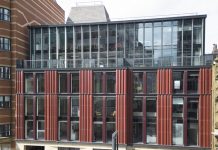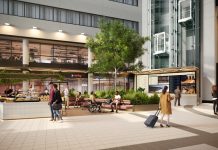Cities which implement careful strategic planning and budgeting and actively reflect the potential for private finance and investment of infrastructure as the economy grows, will be the UK’s most successful regions. This is one of the findings revealed in global real estate advisor CBRE’s Core Cities 2nd edition report, which examines the property market opportunities in the UK’s main cities outside London, including Manchester.
High levels of accessibility will help specialisation, which is a key contributor to the provision of higher-order services agglomeration and clustering, allowing related services to support each other and drive innovation through collaboration. It will also allow for access to suppliers and customers. These increased connections will ultimately deliver more growth.
The status and size of the core city airports is also likely to become a key battleground for these cities, as air travel and international business grows. Brexit might well make international connections beyond and to the EU even more important.
Figures from the report reveal that property investment outside London saw a solid start to 2017. Since 2004 Manchester and Birmingham have taken the lion’s share of investment, though smaller cities like Edinburgh, Aberdeen and Bristol perform better on a population-weighted basis. Investment in the regions has been healthy since the recovery from the financial crisis of 2008. Investment volumes increased up to pre-crash levels in 2014, and are set to have a healthy 2017 after a strong start to the year.
The development scene in regional cities has been extremely active and 2017 is likely to be the most significant year in the office development market since 2009. The quality of space is improving all the time, as demands from occupiers increase.
The six biggest city office markets outside London all look set to perform well with an average 3.4% growth anticipated by 2022, equating to an extra 41,000 office based jobs. Of these 41,000 new jobs, Greater Manchester is expected to account for the most jobs at 15,800.
However, the volume of new starts on office space has slowed over the past year, resulting in a tail-off in expected completions in 2018 and 2019. While the availability of Grade A space in many regional cities has remained in steady balance, with the delivery of new space reasonably well aligned to occupier demand, the concern now is that Grade A choice may once again be more limited in some locations. This is particularly an issue for those cities where new development commenced earlier in the cycle, for example in Manchester, Bristol and Glasgow.
Manchester and Salford have a proud history of placemaking investment. From Barbirolli Square and Exchange Quay to Spinningfields and Media City, major investment in ‘place’ has transformed key areas of the city and delivered exemplars in regeneration. These schemes have attracted business, increased land and property values, increased tourism and enhanced the city’s image. Spinningfields is one of Manchester’s recent success stories. Conceived in the aftermath of the IRA bombing of the city centre, the intention was to create a modern mixed-use business district, and against this objective Spinningfields has delivered all of these objectives and much more.
Devolution, or indeed centralisation to metro mayors in key cities of the kind currently being implemented is destined to be good for economic growth and for property markets. However, the level of devolution available is different in different cities, which over the longer-term may place some cities in a more advantageous position relative to others. Unlike their predecessors, who were mayors only of single local authorities within a wider metropolis, these metro mayors will be able to take coordinated decisions on strategic city-wide infrastructure which will in turn is likely to boost investment opportunity.
Many of the new mayors have emphasised their policies on housing, transport, planning, and town centres – all issues of concern to real estate. In Manchester, for example, Andy Burnham’s manifesto20 called for Manchester to become “the 21st century UK industrial capital” and “a world-leading Digital City and Green City”. There is an emphasis on provision of affordable housing, reliable and affordable public transport serving all communities, less road congestion, revitalised town centres and green spaces, and tackling air pollution.
Andrew Marston, National research director, CBRE commented:
“The UK regions are looking stronger than ever, with high levels of investment, active development and a wide variety of planned infrastructure. 2018 will be a year for regional mayors to really prove their worth. They have the ability to develop a powerful and (literally) single minded vision about the place they want their city to become. However, the power and deliverability of that vision will depend on the political clout that city leaders can muster at the ballot box.”
Neil Mort, CBRE’s Director of North West Office Agency commented:
“Whilst infrastructure projects such as Manchester Airport’s new £1bn improvement programme is underway, it’s fundamental that other key infrastructure projects are implemented, to include the electrification of the TransPennine Line, which will ease and improve commuter migration times with other Northern Powerhouse cities, such as Leeds. This, coupled with new high quality placemaking and improved digital connectivity, will ensure that Manchester is elevated to a new level’.






















